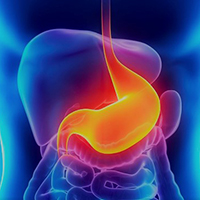A randomized clinical trial of metacognitive therapy and nortriptyline for anxiety, depression, and difficulties in emotion regulation of patients with functional dyspepsia

All claims expressed in this article are solely those of the authors and do not necessarily represent those of their affiliated organizations, or those of the publisher, the editors and the reviewers. Any product that may be evaluated in this article or claim that may be made by its manufacturer is not guaranteed or endorsed by the publisher.
Authors
Functional Dyspepsia (FD) as a psychosomatic disorder is an upper gastrointestinal tract disease without organic pathogenesis causes. The psychopathological nature of this disease and its high correlation with anxiety and depression implies the need for psychological interventions. The purpose of the present study is to compare the efficacy of Metacognitive Therapy (MCT) and medication for the symptoms of anxiety, depression, and difficulties in emotion regulation in patients with FD. In a randomized clinical trial, 65 patients with FD were recruited during their visit to gastroenterology clinics. These patients were randomly assigned to three groups to receive MCT, nortriptyline treatment, and controls. They were treated for 10 weeks and followed up three months later. The instruments used in this study were Hamilton anxiety and Depression Rating Scale (HAM-A and HDRS) and difficulties in emotion regulation scale. The results were analyzed using repeated measure analysis by SPSS (19- IBM). Data analysis showed statistically significant differences in the variables of depression, anxiety among MCT, nortriptyline treatment, and controls at pre-test, post-test and follow-up phases. Moreover, MCT had a better and more persistent effect on anxiety compared to nortriptyline treatment, as well as a better efficacy in treating anxiety and depression symptoms compared to the controls. MCT demonstrated better efficacy in treating anxiety symptoms compared to nortriptyline treatment and controls.






